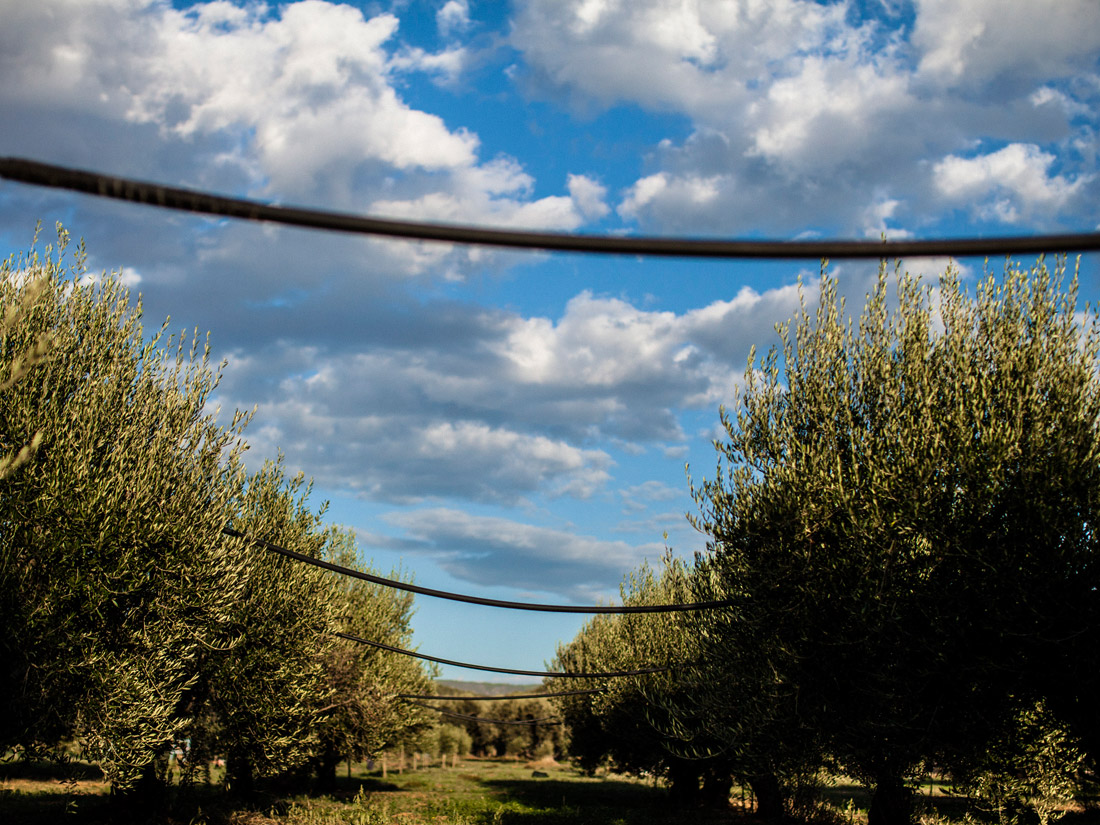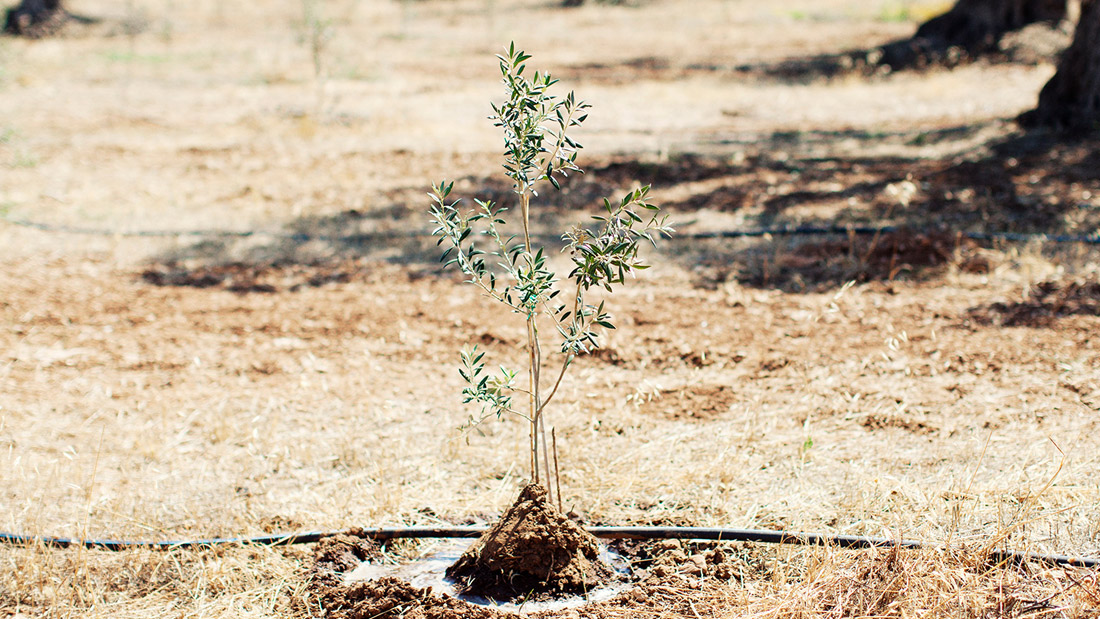
28 May Irrigation requirements for olive trees
The research on the specific water requirements for olive is relatively recent, possibly because much of the world’s acreage is not irrigated. Where irrigation is practiced, the water supply is so limited in most areas that only a small fraction of the potential orchard need is met. In Kranidi, where irrigation is relatively plentiful and inexpensive, water is an increasing priority for olive growers, especially if they want to plant more trees in their orchard. July and August are typically the months when olives need the most water. Insufficient soil moisture during these months reduces shoot growth and carbohydrate production and if severe enough causes fruit shrivel during processing. It needs to be stressed however that too much water can be as detrimental as too little water. Another less obvious effect of poor water management is a reduction in nitrogen (N) assimilation. In Rhizoma Olive Farms we try to improve our orchard’s productivity without compromising the quality of our oil by following a more scientific irrigation scheduling based on sound agronomic principles.

